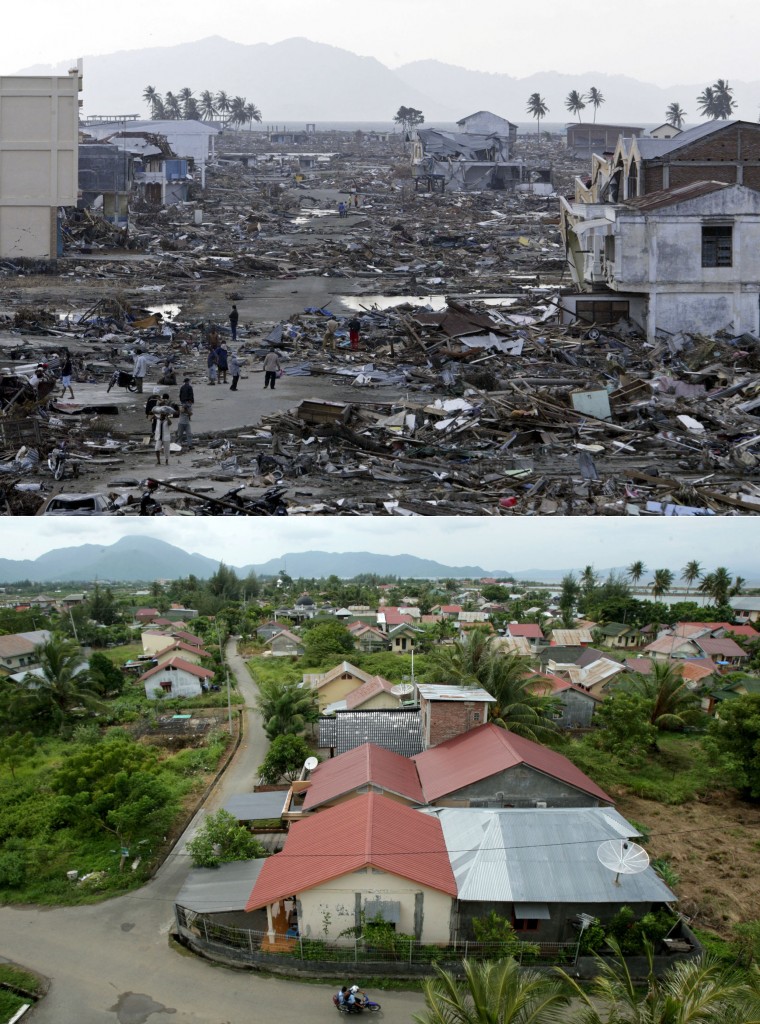
This combination of photos shows areas affected by the earthquake-triggered tsunami which hit Banda Aceh, the capital of Aceh province, Indonesia, on Dec 25, 2004. The top photo shows a devastated area on Dec 31, 2004, six days after the tsunami. The bottom photo shows an area with rebuilt housing on Nov. 19, 2013. AP
MANILA, Philippines—The Department of Social Welfare and Development (DSWD) recently held online exchanges on disaster response with Indonesians who were involved in the recovery efforts in Aceh, Indonesia, after the devastating tsunami there in 2004.
Social Welfare Secretary Dinky Soliman said she considered the post-disaster relief and recovery operations in Aceh “the biggest humanitarian effort and reconstruction project in developing countries to date.”
On Tuesday, select DSWD officials and employees held a video conference with key Indonesian individuals who were part of the overall disaster response.
The learning exchange, a partnership between the DSWD and Asian Development Bank (ADB), focused on the Community-Driven Development (CDD) approach, which is a strategy also being used by the DSWD.
CDD focuses on empowering and building up the capabilities of citizens and local government units so they can lift up their communities from poverty.
Camilo Gudmalin, DSWD assistant secretary who had worked in Aceh’s disaster operations, noted how ordinary citizens became active participants in the Indonesian reconstruction effort.
“The communities came together to participate in identifying their problems, even in a disaster situation,” Gudmalin said.
Victor Bottini, a social development specialist who served as the World Bank resident representative heading a four-person team in Aceh, said they chose the CDD approach because the citizens themselves were strongly affected by the tsunami.
“It’s because we’re concerned about people, not just infrastructure,” he said.
Bottini explained that CDD made disaster response easier, as it ensures that the needs of calamity victims are met and they can also be trained to become better prepared for future disasters.
“You have a [ready] network before and after a disaster. You do not have to set up a system when the disaster hits because it is already there,” Bottini said.
He said that following the Aceh experience, he and the other implementors realized that those who worked in CDD activities had more ownership of the projects they implemented because they were the ones who actively worked to accomplish them.
Last month, the ADB committed to provide a $372.1-million emergency loan.
Similarly, the World Bank pledged a $480-million loan for a national community-driven development program, which may be used for disaster emergency response.
These commitments were made after Super Typhoon Yolanda (international name: Haiyan) hit the Philippines, devastating Tacloban City and many other parts of the Visayas.
The DSWD will also look into other thematic areas, including gender, conflict, environment protection and the participation of indigenous peoples in their recovery and development efforts.

